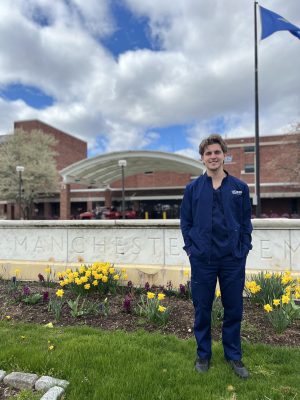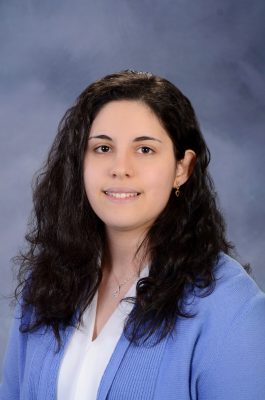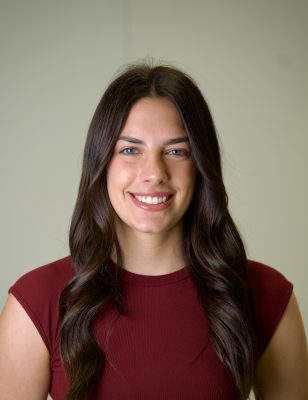
Voices of Success: Alumni Share Their Journeys

“My AHS degree transformed my academic journey by providing opportunities that reinforced my decision to pursue an MD/PhD. After starting out homeschooled in the swamps of central Florida, the natural world around me shaped my education, and my curiosity led me from dissecting squids to studying mangrove ecosystems. When coming to UConn, the AHS program gave me both the structure and freedom to continue asking questions, but it supported me through research, public health work, and peer mental health education. The program's flexibility was crucial in helping me connect classroom learning with real-world impact, particularly through the Adopt a Health District internship where I worked with a local health department on opioid response. This hands-on experience bridged my interest in medicine with community-level change.
My experiences in psychology and polymer synthesis research labs were instrumental in shaping my honors thesis and ultimately helped me secure my research position at Yale School of Medicine post-graduation. What began as a love for understanding natural systems evolved into a commitment to patient-centered science. My winding journey, from acting in Shakespeare plays and working hospice shifts to spending late hours in the chemistry lab and volunteering for local EMS, taught me that real impact lies at the intersection of research and empathy.
My advice: Don't be afraid to write your own script. There's no such thing as a 'normal' path, and some of the best growth happens with unexpected opportunities or forced pivots. Say yes to what excites you, even if it's outside your comfort zone. Leadership experiences, research projects, and creative work all contribute to your growth. Take time to explore your curiosity and let it guide you, even if it leads somewhere totally new. It’s all part of the bigger picture of who you’re becoming.”
-Eva LaRue Barber, AHS’25
Eva is graduating from UConn this May with honors (as both an Honors Scholar in the major and an Honors Laureate, with additional honors coursework and an Academics in Action Project) in Allied Health Sciences and will give the honors commencement speech. This year, she has worked for the Undergraduate Student Government as the Deputy Director of Student Services, at UConn Student Health and Wellness as a Peer Mental Health Educator, and as an Undergraduate Researcher at the Institute of Materials Science. Her thesis, which focuses on altering polymer properties using varying ligands for biomedical applications, is in its final draft. After graduation, she will begin working at the Yale School of Medicine in the Dermatology Research Department, focusing on stem cells and commercializing new products for the market. She plans to apply to MD/PhD programs next year. She is the next co-student coordinator working with Peaches on ADOPS and ADOPHD.

As an AHS major, my classes gave me the opportunity to explore health care careers and make an informed decision about my future. I was ultimately most drawn to patient care and decided to pursue nursing. The support I had from my advisor, Prof. Bureau, and other AHS faculty allowed me to smoothly transition into UConn's CEIN program. Nursing is a rewarding career for those who want to make a meaningful impact on others through compassion and clinical expertise. You also have the option to advance your nursing career through higher education, which is my long-term goal.
-Alec Levesque, AHS’25 CEIN’26

“The Allied Health program at UConn is an incredible major to pursue for any students considering healthcare routes as the program offers a multitude of specific routes to learn about and experience skills in. One of the first courses I took under the Public Health and Health Promotion concentration, Intro to Epidemiology, opened my eyes to the realm of public health behind the scenes. I learned about the role of health policy and statistics in responding to epidemics– and more specifically, was introduced to the current state of the world’s response to the opioid epidemic. Following this course, I found myself fascinated by the strengths and weaknesses in our approaches which fostered a drive within me to learn everything I possibly could about the opioid epidemic in order to better dedicate my future to helping eradicate it. Thanks to my concentration, I was able to explore more around research efforts, legislation, develop skills in biostatistics, and ultimately participate in my most recent substance misuse prevention internship at the Stratford Health Department through the ADOPHD program. Taking a chance on experiential learning was the best and most important decision I made in the past four years, and I am very grateful for it! "
- Alex Torres-Munoz AHS’25 (ADOPHD: Stratford Health District)
Alex was selected to serve on the Supreme Executive Board of Alpha Zeta Omega, her professional fraternity for pharmacy majors focused on leadership, service, and advancement in the field of pharmacy. She also just finished her follow-on service project in conjunction with the Gilman International Scholarship Program, in which she created resources for prospective Gilman applicants, held an application writing workshop, and worked with the Experiential Global Learning department to develop a future mentorship program. Following her graduation, she will hold Non-Competitive Eligibility status in the government for a year, representing her ability to meet certain requirements of the federal job search with experience in foreign study and work. Alex is currently working with Dr. Rickles to develop and submit a legislative change in pharmacists’ ability to co-prescribe Naloxone alongside opioids to prevent overdose deaths caused by prescription opioids.
Honors Program in Research

My favorite part about academic research is the unpredictability of the data. When it comes to the analysis of the data you have dedicated a significant amount of time to collecting, the findings are going to yield surprises. It is exciting whenever the results support your initial hypothesis, however the results which are unexpected can focus your research in an entirely new direction as more questions arise and different avenues to explore open up. There are continous challenges to take on and collaboration is encouraged.
- Rebecca Abirached AHS’25 Honor Student: Research done at the Center for Regenerative Medicine and Skeletal Biology, UConn Health Center
Diagnostic Genetic Sciences (DGS):
- Diagnostic Genetic Sciences is an upper division, professional, accredited laboratory genetics-based program.
- DGS students take courses including molecular technologies, cancer biology, cytogenetics, scientific writing, and immunology.
- Students are at the Storrs campus for three semesters then complete an off-campus clinical rotation in molecular diagnostics.
- The Diagnostic Genetic Sciences major leads to a Bachelor of Science degree. There is also a Post-Baccalaureate Certificate available.
- Diagnostic Genetic Scientists evaluate and investigate DNA and RNA with regards to disease, identity, cancer, and forensics.
- DGS majors work in diagnostics, research, public health, etc. or go on to grad school in genetic counseling, biotechnology, bioinformatics, dentistry, medicine, PA, etc.
- Upon graduation, students are eligible to sit for the MB(ASCP) certification exam offered by the Board of Certification of the American Society for Clinical Pathology (ASCP)

I would tell rising AHS seniors that they should spend time thinking about topics that they find interesting and then look for professors at UConn who share the same interests. Focusing on a topic that excites you makes the research and writing process much easier and allows you to better connect with your thesis advisor.
- Danielle Adams AHS’25 Honor Student Research done at: UConn Department of Nutritional Sciences